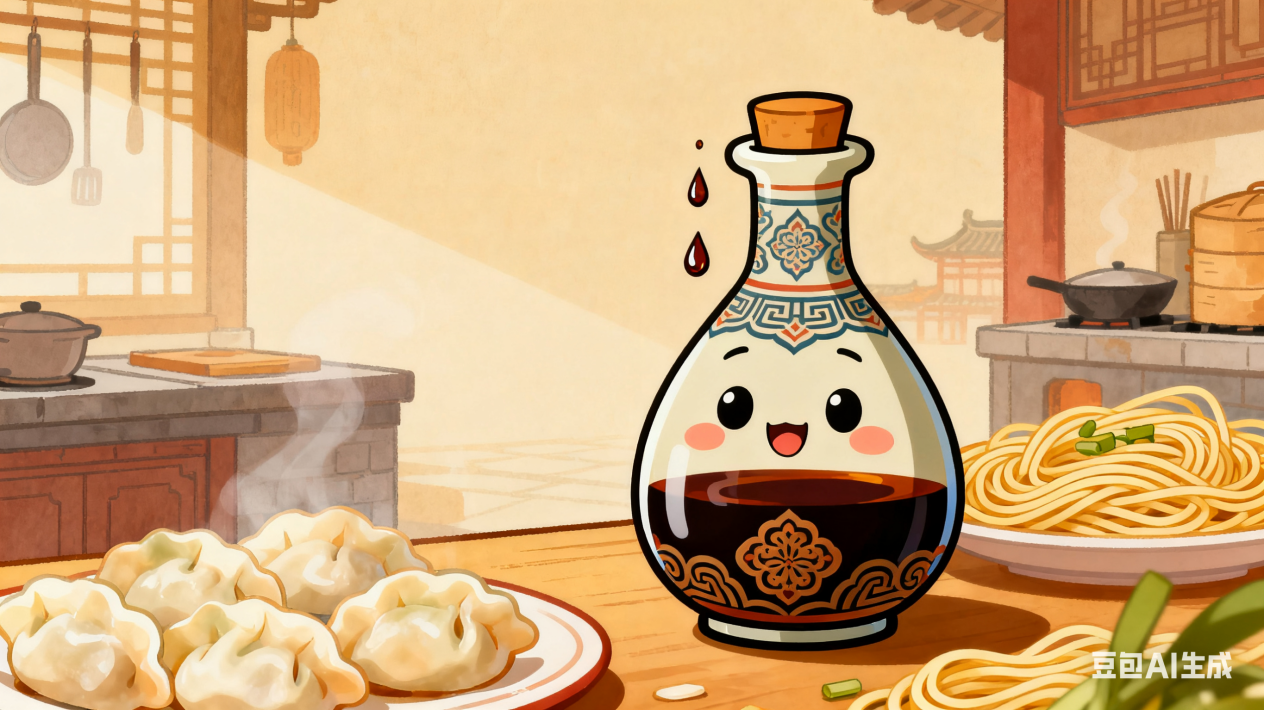醋:流淌千年的中国饮食文化符号

In Chinese food culture, vinegar is more than just a sour condiment (调味料) that makes dishes taste better; over thousands of years, it has become part of the country’s traditions, important ceremonies and even daily conversations.
Chinese vinegar boasts a history stretching back at least to the Zhou Dynasty. Back then, it held such importance that the classic “Rites of Zhou” recorded the court appointing a special official called “xiren” (ancient term for vinegar administrator) to oversee its supply. Vinegar-preserved foods even served ceremonial roles in state sacrifices and royal banquets, making vinegar a cultural symbol.
By the Han Dynasty, vinegar-making had grown sophisticated. The Eastern Han agricultural text “Monthly Instructions for Four Classes of People” specified the best time to make it: the fourth day of the fourth month for fermented sauces, the fifth day of the fifth month for vinegar. During the Southern and Northern Dynasties, vinegar craftsmanship reached new heights. The agrarian (农业的) encyclopedia “Essential Techniques for the Common People” documented over 20 brewing methods.
In the Tang and Song Dynasties, vinegar became an essential daily condiment. The Southern Song memoir “A Record of the Millet Dream” coined the famous line listing it with “firewood, rice, oil, salt, sauce, tea” as household necessities, a phrase still used to describe daily life. It was also during this period that vinegar became deeply embedded (植根于) in everyday language. Many vinegar-related expressions that we use today to describe jealousy, such as “eating vinegar”, “a vinegar-fueled temper”, and “to knock over the vinegar jar”.
From the Ming Dynasty, vinegar varieties diversified. Li Shizhen’s “Compendium of Materia Medica” mentioned rice, glutinous rice, millet, wheat, and barley vinegars, each with regional flavors. The text also noted its supposed medicinal uses, such as nourishing the liver, and stimulating appetite — strengthening vinegar’s place in both Chinese cuisine and culture.
Today, as modern kitchens embrace new flavors and techniques, Chinese vinegar remains a firm presence. In every drop, vinegar carries the weight of millennia (千年) — proof that some elements of culture don’t fade with time, but grow more precious as they’re passed down.
原创编写 版权所有 侵权必究! 每日更新 个性化阅读 英语飙升!1. 1. Why was a “xiren” appointed in the Zhou Dynasty?(细节理解)
A To record royal ceremonies.
B To supervise state sacrifices.
C To develop new recipes.
D To manage vinegar supply.
2. 3. How did vinegar influence the Chinese language during the Tang and Song Dynasties?(细节理解)
A It enriched emotional expressions.
B It made daily communication easier.
C It created new cooking terms.
D It replaced older vocabulary.
3. 4. What does Li Shizhen’s book show about Ming Dynasty vinegar?(细节理解)
A Its replacement by other condiments.
B Its decline in culinary importance.
C Its cultural and functional diversity.
D Its limited medical applications.

